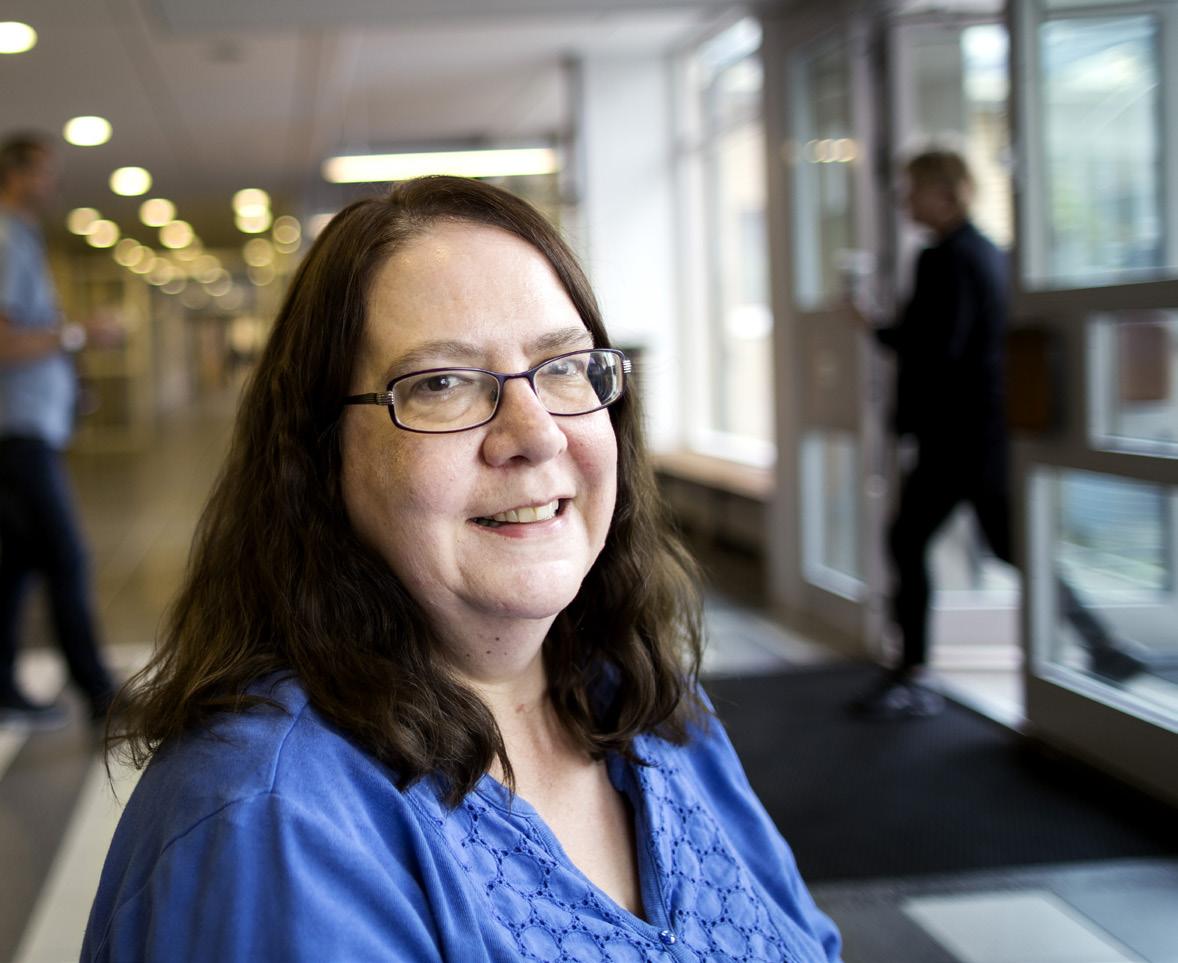
4 minute read
for GU. Demands gender equality
Difficult for women to make career
Improving academic culture and ensuring an objective meritocracy. These are the two most important proposals from a committee that aims to increase gender equality at the Faculty of Science. An administrator will now be recruited whose remit will be to work with gender equality for a oneyear period.
Advertisement
DESPITE MANY YEARS spent working on gender equality, currently only 19 percent of the professors at the Faculty of Science are women. Furthermore, there does not seem to be any change in sight; only 23 percent of the associate senior lecturers are women and since 2012, the proportion of female doctoral students and post-doctoral positions have also been in steady decline.
To investigate what the faculty can do about the discouraging figures, Dean Göran Hilmersson appointed a committee last autumn.
– I ASKED FOR a page with action points but received a comprehensive report and a large number of specific proposals. I am really impressed with the committee’s work.
The committee has interviewed members of the faculty’s management, a number of female employees as well as women who have left academia. They have also sent out a questionnaire.
– The differences between the departments are quite considerable, says Anne Farewell, Associate Professor in Microbiology, who headed the committee. Several departments have approximately as many female as male doctoral students but subsequently, the number of women start to decline. The Department of Conservation is the most equal, but with a clear gender divide between the areas of garden and landscape and building crafts. Although the Department of Mathematical Sciences is male-dominated, it still has many female lecturers in relation to the relatively low number of female doctoral students. Could it be related to the fact that the department is shared with Chalmers, who introduced the special Genie equality initiative?
THE FACULTY HAS taken a number of steps over the years to make it easier for women to pursue careers, including offering mentors and coaching.
– It can be beneficial, but it can also be interpreted as women having to change in order to fit in, Anne Farewell points out. Instead, the environment should be one where all employees feel welcome. Several women we interviewed told us about unpleasant comments: one employee was told that she had received a distinction just because she
If we are to avoid having a single-sex faculty, gender issues must be handled on a more funda- mental level. GÖRAN HILMERSSON
was a woman, another that she could not have a career because she had had a child. Moreover, other unpleasant behaviour was also pointed out, such as people who get up and shout during seminars. The management should be clear that such behaviour is simply not acceptable.
THE COMMITTEE has compiled a list of 13 suggestions for how to get more women to stay in academia.
– You could, for example, make life easier for doctoral students with children by giving them two extra years to complete their doctoral studies, as is the case in Denmark, instead of just one year. We must also
Anne Farewell has stopped hoping that gender equality will come about by itself.
ensure that appointments are meritocratic and that everyone assessing candidates is objective. Perhaps we should also consider the positions that are being advertised: more women are applying for senior lecturer positions than for professorships. We could also get ideas from other institutions, such as the Sahlgrenska Academy, which has a checklist of skills that must be evaluated when promoting a professor.
A LOT OF THE information stated in the report has been known for a long time, explains Göran Hilmersson.
– If we are to avoid having a single-sex faculty, gender issues must be handled on a more fundamental level. The committee has therefore been tasked with extending its investigation and an administrator will be appointed to work with gender equality for a one-year period.
Most of the committee’s proposals are neither difficult to implement nor particularly costly, Anne Farewell points out. – When I started studying, I was told that gender equality would come about by itself. That was thirty years ago. Now, I hope this initiative will lead to real change.
Facts
The report Increasing the Number of Women at the Natural Sciences Faculty is based on interviews with the management at the Faculty of Science’s seven departments, interviews with female staff, a questionnaire and material from RED 19. The committee consists of the chairperson Anne Farewell, as well as Raimund Feifel, Håkan Pleijel and Stavroula Golfomitsou. The most urgent reforms, according to the committee • Appoint a Gender Equality Project Manager • Establishing a Gender Equality Advisory Committee • Create gender policies • Give clear instructions to external evaluators and create an objective scoring form • Provide education and workshops on gender issues for management, the academic appointments board and the associate professor appointment committee.










